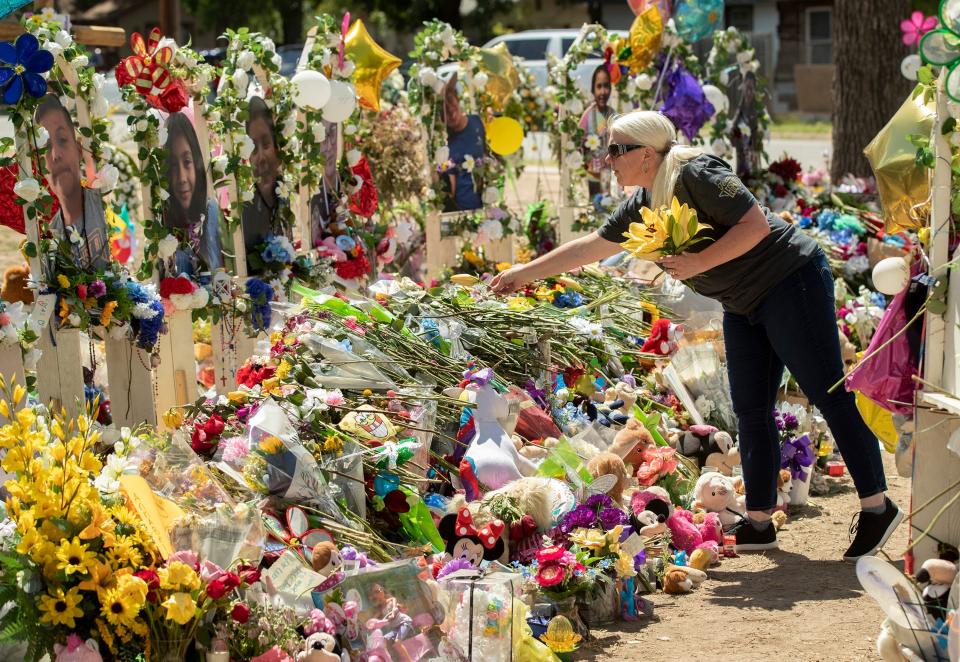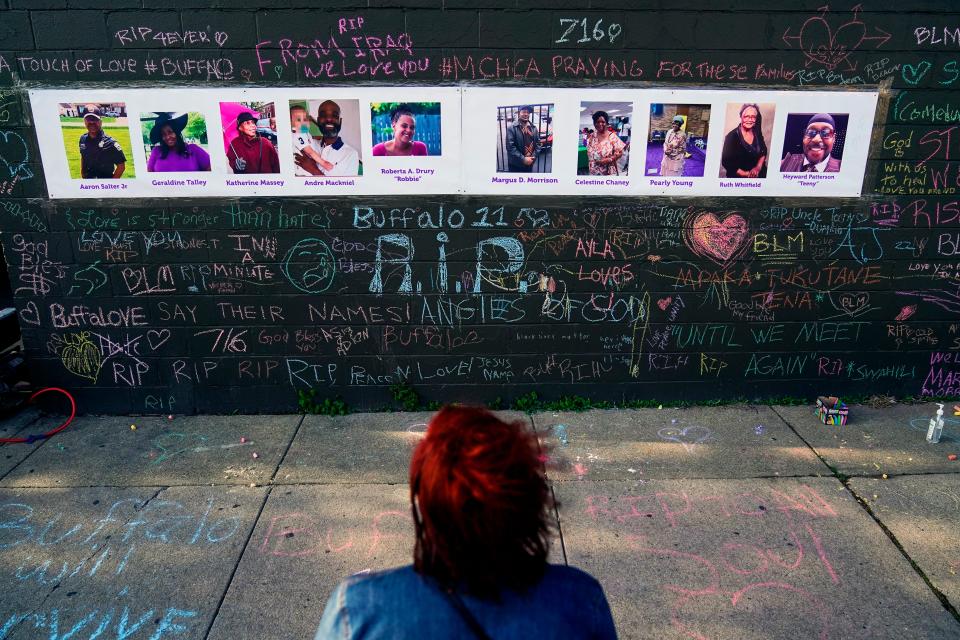Hate-fueled violence is ripping apart our cities and nation. We need to stop it.
A rising tide of hate-fueled violence in America is causing unspeakable loss, pain and grief. Tragically, when we name communities across the nation like Buffalo, Uvalde and too many others, we summon memories of the attacks that have occurred there.
Americans are living in fear when they pray, work, learn, vote and perform simple acts of public engagement. Fortunately, a new movement is underway to address hate-fueled violence, awaken Americans to condemn this common danger to our civic peace and affirm the bonds of mutual respect that make self-government possible.
This is the purpose of the White House United We Stand Summit on Thursday – and dignity.us, the citizens’ initiative to address hate-fueled violence in America that we are launching.
White House summit confronts violence
As former directors of the White House Domestic Policy Council under Republican and Democratic presidents, all four of us have seen firsthand that politics can be intensely confrontational. We have also experienced the power of tapping the creativity and ingenuity of the American people to solve our public problems.
Hate groups are targeting our children: Here's how you can help to protect them online
What we are seeing now goes beyond what we have seen before. It’s not simply that Americans disagree; it’s that on the widening fringes of American politics, opponents are viewed as enemies. And a cycle of threats and retribution – an arms race of abuse – destroys social trust, disrupts the working of government, erases ethical boundaries and leads to unreasoned rage and even violence.

We know some of the factors that have led to this moment and this crisis. Some voices have signaled permission for politically useful hatred. Social media has dramatically increased the velocity of lies and spread of extreme viewpoints, preparing some for real-world violence. And it has never been easier for someone unbalanced by rage to gain military-grade weapons that add to our total of mass murder and measureless grief.
Our mom was killed by white supremacist: Now we need advocacy, not sympathy
Some results can be measured. The Center for the Study of Hate and Extremism reports that hate crimes in major cities rose in the first half of 2022, following double-digit increases over the past two years. At least nine states broke annual records in 2021.
According to the FBI, crime that targets individual groups is on the rise across the board. Americans are hurting fellow Americans; this must stop now.
How do we eradicate this hate-fueled violence from our common life? It is not a task accomplished by a five-point plan. We must attempt nothing less than a renaissance of our civic ideals – a renewed appreciation for freedom and tolerance, a shared commitment to the common good, a determination to defend the boundaries of basic decency and humanity, and above all, a new respect for the dignity in each other.
Why did I do nothing? As an Asian bystander at an anti-Asian crime, why did I do nothing? Here's what experts say.
'The solid rock of human dignity'
Healing is a daunting task. But there is guidance to be found at a smaller scale.
Communities such as Buffalo, New York; Charleston, South Carolina; El Paso, Texas; Nickel Mines, Pennsylvania; Orlando, Florida; Pittsburgh; and Uvalde, Texas, have drawn strength and resilience from the heart of suffering. Leaders in schools, workplaces, faith-based institutions, law enforcement and local governments have been forced by hard experience to innovate.

Researchers and experts have weighed in on the problem of hate-fueled violence. Foundations and nonprofits have supported initiatives on prevention, response and recovery. Even former members of hate groups have provided insights into why they joined and why they left.
Race and history circle us: Where I was when a white gunman killed 10 Black Americans in Buffalo
The purpose of our initiative is not to reinvent wheels on an industrial scale. It is to find and harvest the hope that Americans are already producing. We will begin with an initial phase of listening and learning, starting with an exhaustive national search for firsthand testimonials, insights and solutions on the topic of transcending identity-based conflict. And we will ensure such input comes from Americans of every region, race, faith, ethnicity and ideology.
But we also understand that America does not have the luxury of time in confronting these matters. And we know from history – which is littered with hate-fueled violence – that democracies are fragile institutions requiring us to trust each other with dignity and recommit to a shared political community with civil dialogue.
The goal of this public effort to gather input from the American people is to produce a countrywide response that greatly expands the scale of effective community-based efforts. We undertake to shape a set of recommendations and begin to implement breakthrough ideas, focus on what works and rally Americans to a common endeavor across our differences.
Opinion alerts: Get columns from your favorite columnists + expert analysis on top issues, delivered straight to your device through the USA TODAY app. Don't have the app? Download it for free from your app store.
We understand this effort comes at a time of cynicism about America’s ability to confront its largest challenges. But we also know that Americans of goodwill are already working to prove it’s possible in this case.
Our best hope lies in tapping their ingenuity, supercharging their successes and building a shared future on what Dr. Martin Luther King Jr. called “the solid rock of human dignity.”
John Bridgeland, Cecilia Munoz, Joe Grogan and Melody Barnes were directors of the White House Domestic Policy Council under Presidents George W. Bush, Barack Obama, Donald J. Trump and Barack Obama, respectively. Americans can share their testimonials, insights and ideas for how to address hate-fueled violence and division in America at dignity.us
You can read diverse opinions from our Board of Contributors and other writers on the Opinion front page, on Twitter @usatodayopinion and in our daily Opinion newsletter. To respond to a column, submit a comment to letters@usatoday.com.
This article originally appeared on USA TODAY: Hate crimes, violence increase in US, pose threat to our democracy

